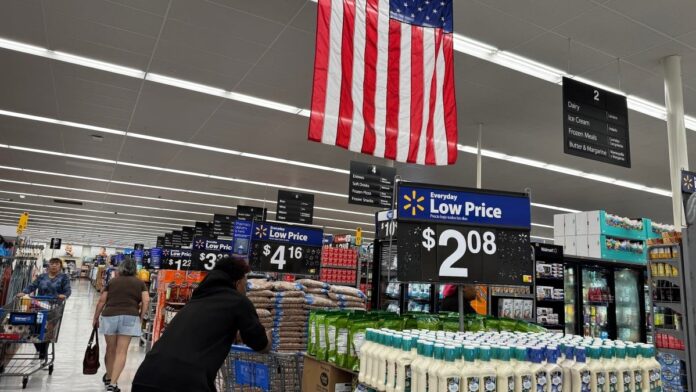Understanding the Impact of Tariffs on Consumer Prices
The current tariff era has led to a heightened sensitivity to price fluctuations, with many people quick to attribute any increase in prices to tariffs. Recently, there was a false alarm about Microsoft raising the prices of some Surface laptops, which was fact-checked and debunked. Now, a similar situation has arisen with Walmart, one of the largest retailers in the United States.
The Reinstatement of the $6.99 Fee
On April 30, Reuters reported that Walmart had reinstated a $6.99 fee for online grocery delivery and pickup orders under $35 for shoppers in the Walmart+ Assist program. This program is designed for shoppers who use food stamps, EBT cards, or Medicaid, offering them a 50% reduced price for the Walmart+ membership, which includes benefits such as free pharmacy delivery and discounted gasoline purchases. During the COVID-19 crisis, Walmart had waived the basket fee on small orders made by Walmart+ Assist members, but this charge was reinstated in April.
The Misattribution to Tariffs
The Daily Mail reported that the reinstatement of the fee was due to "new tariffs imposed by President Donald Trump." If true, this would be a significant public relations issue, as it would imply that Walmart is passing on tariff costs to low-income shoppers. However, a company spokesperson has denied this claim, stating that the basket fee has nothing to do with tariffs. This fee is a standard practice for most retailers, including Target, when it comes to online grocery orders and does not apply to in-store purchases.
The Impact on Low-Income Shoppers
Walmart operates 4,605 stores in the United States and is a vital source of low-cost groceries and everyday necessities for many shoppers. According to Numerator, a data and tech company, 94% of SNAP shoppers have bought groceries at Walmart in the past year, making it the most popular grocery store among food stamp recipients. While U.S. households do consume a significant amount of imported produce and dry goods, which are affected by global tariffs, large companies like Walmart are better positioned to absorb price increases than smaller businesses.
Walmart’s Response to Tariffs
In a February earnings call, Walmart CEO Doug McMillon reassured investors that the company is equipped to handle price increases due to tariffs. Additionally, Walmart has announced a new program called Grow With Us, aimed at bringing more American-made products to its shelves. This initiative demonstrates the company’s commitment to mitigating the impact of tariffs on its customers.
Conclusion
In conclusion, the reinstatement of the $6.99 fee for online grocery delivery and pickup orders under $35 for Walmart+ Assist members is not related to tariffs. While tariffs can have a significant impact on consumer prices, large retailers like Walmart are better equipped to absorb these costs. It is essential for consumers to be aware of the factors that influence price fluctuations and to verify information before jumping to conclusions. By doing so, we can make more informed decisions and avoid spreading misinformation.

